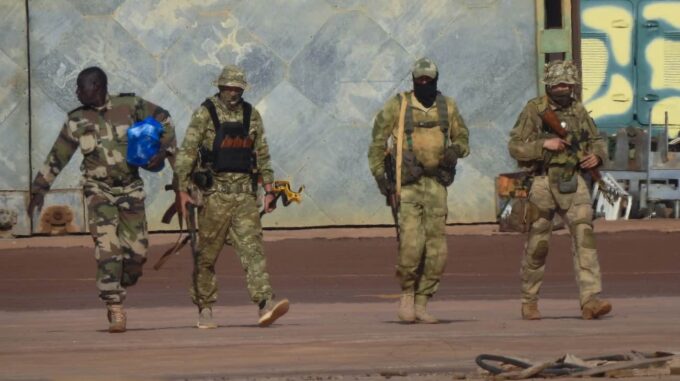Russian Activity in West Africa: Arms Transfers and the Creation of a New Military Structure Replacing “Wagner”

Moscow is expanding its military influence in West Africa, actively sending troops and equipment to the region, where a new Russian project—the "African Corps"—is gaining increasing importance. This is happening against the backdrop of a reduced role for the private military company "Wagner" and the establishment of a more centralized structure with even greater autonomy and support from the Kremlin. According to sources, including the Associated Press, Russia is conducting large-scale deliveries of weapons and military equipment to West African countries, using freight ships under the Russian flag. For example, at the end of May, military equipment was unloaded in the port of Conakry (Guinea) from the vessels Baltic Leader and Patria, which are under EU and US sanctions. From there, the equipment was transported overland to Mali, indicating organized logistics and an intention to maintain Moscow's presence in the region on a long-term basis. The supplies include tanks, armored personnel carriers, artillery systems—including 152mm guns—radio-electronic warfare equipment, "Sparta" type armored vehicles, as well as tankers and boats bearing Russian markings. Satellite images have recorded the presence of a Russian Su-24 fighter jet at the Bamako airbase, indicating active military presence and potentially air support operating independently. It is important to note that the new "African Corps" differs significantly from local and regional military formations, as it has the capability for independent air support and combat operations without reliance on other structures. This allows Moscow to develop more flexible and centralized military units capable of maintaining control over the region and extending its influence. Kremlin spokesperson Dmitry Peskov stated in a comment that Moscow intends to deepen and expand cooperation with Western African countries in all areas, with particular emphasis on economic collaboration and investments. At the same time, he stressed that this cooperation also covers sensitive issues related to defense and security. Following the dissolution of the Russian private military company "Wagner" in 2023 and the death of its leader, Yevgeny Prigozhin, the Kremlin established a new structure—the "African Corps"—which has taken on a larger share of operations in the region. According to European Union estimates, this new military force is controlled by subdivision 29155 of the GRU, known for its covert operations—including sabotage, diversionary actions, and targeted killings. In December 2023, the EU imposed sanctions on the commander of this unit, Major General Andrei Averyanov, for his involvement in coordinating the activities of the "African Corps." European analysts and military experts note that the growing role of Russian forces in the region presents additional challenges to stability and democratic reforms. Russia actively supports military juntas in countries where legitimate governments have been overthrown, negatively impacting security, political stability, and future democratic processes in West Africa. A particularly noteworthy aspect is the constant flow of weapons from Russia, which strengthens the position of the "African Corps" amid the declining influence of "Wagner." Military sources and researchers report that the new Russian military formation is actively recruiting mercenaries in the region, offering substantial financial rewards—up to 2.1 million rubles—as well as land plots and social guarantees. Overall, amid the rapid reorganization of military influence on the continent, Moscow is not only seeking to maintain its presence but also to expand its operations by leveraging opportunities for legitimizing new structures and diplomatic maneuvering. This undoubtedly poses an additional challenge for the international community, which is closely monitoring the situation in the region and working to prevent the escalation of conflicts and destabilization in West Africa, where Russian interests are becoming increasingly active and evident.

